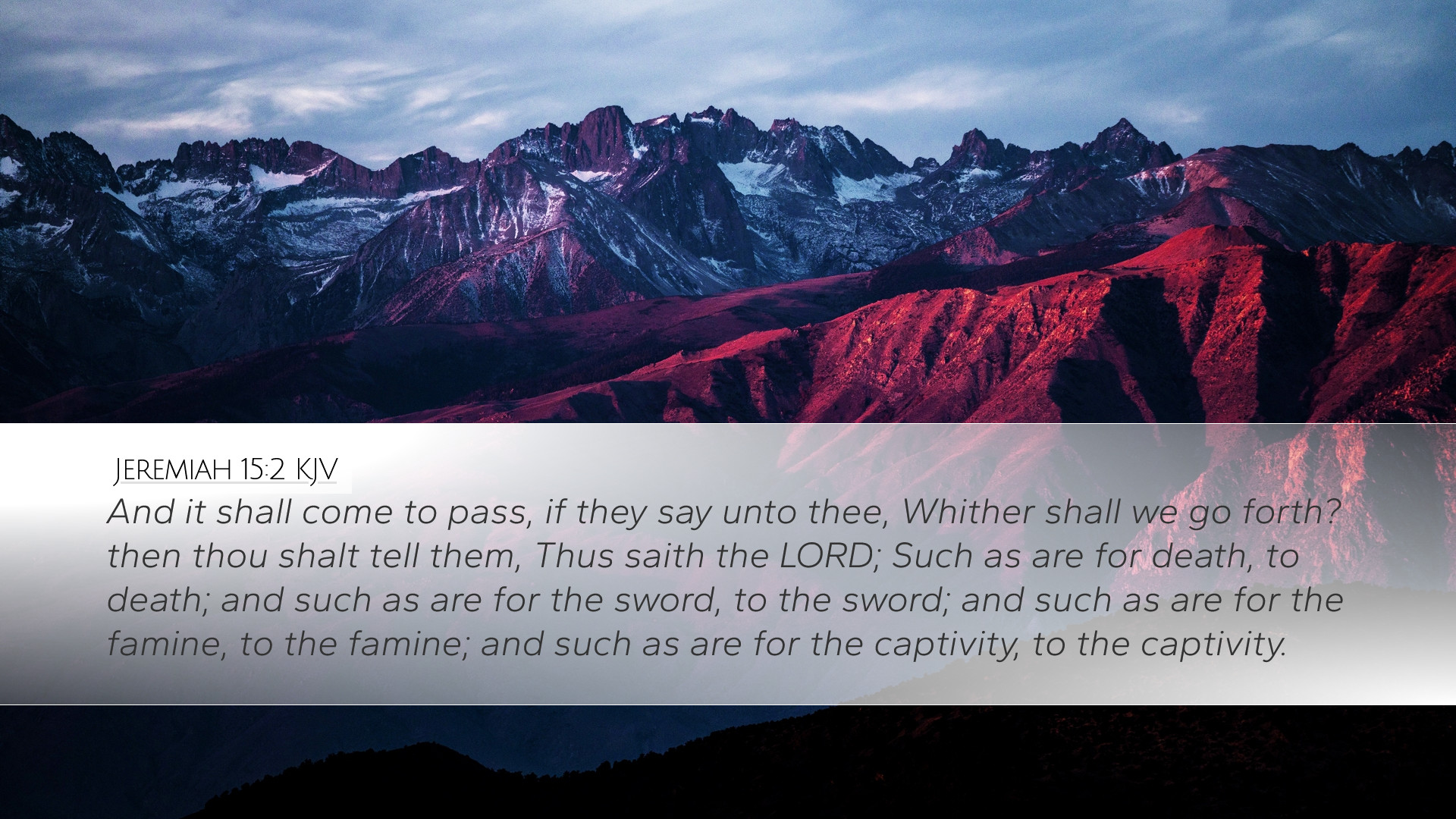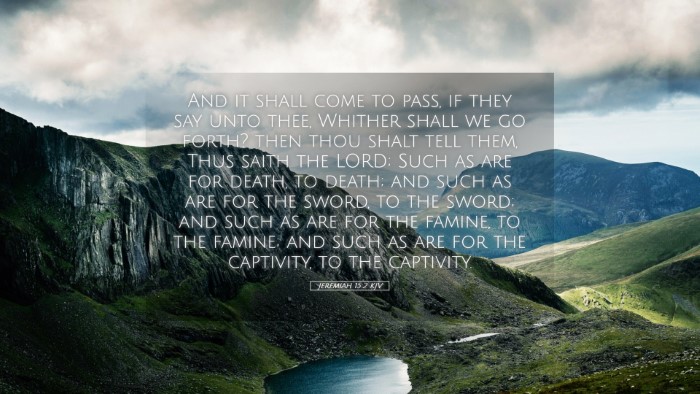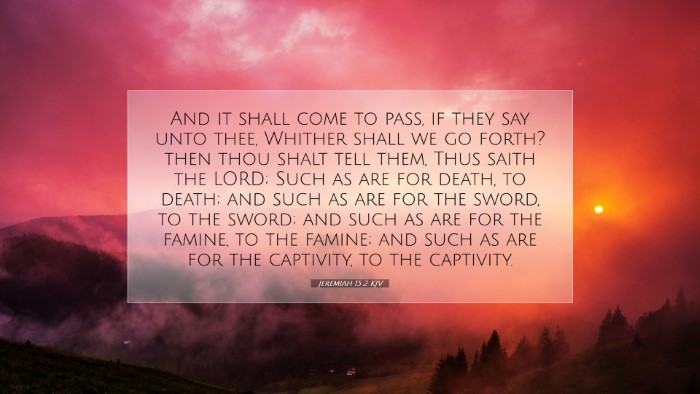Commentary on Jeremiah 15:2
Jeremiah 15:2 reads: “And it shall come to pass, if they say unto thee, Whither shall we go forth? Then thou shalt tell them, Thus saith the Lord; Such as are for death, to death; and such as are for the sword, to the sword; and such as are for the famine, to the famine; and such as are for the captivity, to the captivity.”
Contextual Overview
In this chapter, the prophet Jeremiah is relaying the Lord's message concerning the impending judgments upon Judah. Having endured a long period of prophetic ministry filled with hardship and rejection, Jeremiah speaks not only as a prophet but as a witness to the spiritual decline of his people.
Exegesis
This verse is part of God's declaration on how He will deal with the people of Judah who, due to their unfaithfulness, will be subject to severe judgments. The tone of the passage indicates a finality in God's decisions, outlining distinct fates for the people based on their responses to God.
Interpretation of Specific Elements
-
“If they say unto thee, Whither shall we go forth?” – This question reflects the desperation of the people who, recognizing their peril, seek guidance amidst the chaos resulting from God's impending judgments.
-
“Thus saith the Lord” – The prophetic authority is emphasized, showcasing that the pronouncement is not Jeremiah’s personal opinion but a direct communication from God.
-
“Such as are for death, to death” – This evokes the grim reality of judgment where certain people are destined for judgment due to their continued rebellion against God.
-
“To the sword, to the famine, and to captivity” – These represent the modes of God's judgment. The sword symbolizes violent death, famine indicates scarcity leading to death, and captivity suggests being taken into exile, all consequences of their sinfulness.
Theological Insights
The implications of this verse extend beyond its immediate context, reflecting broader theological themes of divine sovereignty, human accountability, and the seriousness of sin. Each fate described serves as a stark reminder of the consequences of turning away from God.
Monday Morning Reflection
Reflecting on this passage during a worship service or a midweek Bible study may provoke a serious examination of personal and corporate fidelity to God. The specificity of God's judgments draws attention to how individual choices can lead to collective consequences.
Insights from Commentators
Matthew Henry
Henry emphasizes the terrible weight of this prophecy. He suggests that it conveys a sense of inevitable fate. Those who have chosen a path apart from God must face the consequences of that choice. He also observes that the question posed reflects a common human desire for understanding in crisis, showing that even in judgment, there is an inquiry after God.
Albert Barnes
Barnes points out the different destinies prescribed in the passage, underscoring that God's decisions are based upon the character and actions of the people. For Barnes, this serves as a benchmark for assessing one's spiritual state; it invites a deep introspection regarding allegiance to God amid trials.
Adam Clarke
Clarke elaborates on the categories of judgment mentioned in this verse. He adds that captivity, in particular, signifies not merely punishment but also a profound spiritual loss — the removal from the land of promise. Clarke stresses the importance of repentance and the dire ramifications of neglecting divine warnings.
Application for Today
In the contemporary Christian context, Jeremiah 15:2 can serve as a chilling reminder of the seriousness of sin and the urgency of repentance. It challenges believers to remain vigilant in their walk with God and to seek His guidance, especially during times of personal or societal crisis.
Considerations for Pastors
- How can the message of judgment be communicated effectively while still emphasizing the hope found in Christ?
- What practical steps can be taken to lead congregants in a personal examination of their spiritual lives?
- In what ways might the themes of this passage resonate with today's cultural challenges?
For Theologians and Scholars
The depth of this passage provides rich material for theological discourse surrounding divine justice, human agency, and the nature of prophetic ministry. Scholars may explore the theological implications of the differing judgments and their relationship to covenant faithfulness.
Conclusion
Jeremiah 15:2 stands as a potent reminder of God’s holiness and justice and calls both individuals and communities to reflect deeply upon their relationship with the Creator. As believers engage with this passage, it invites an unflinching look at their spiritual lives and a recommitment to the divine call to righteousness.


